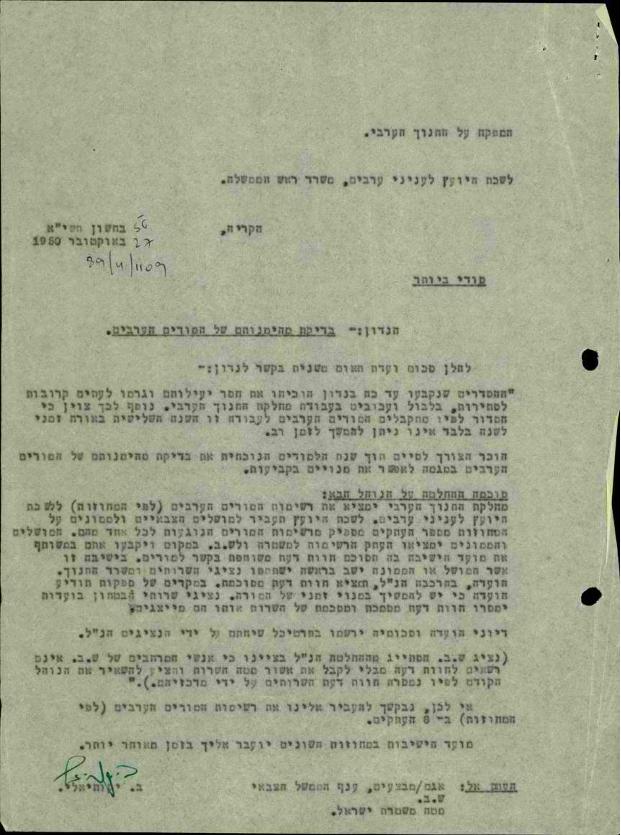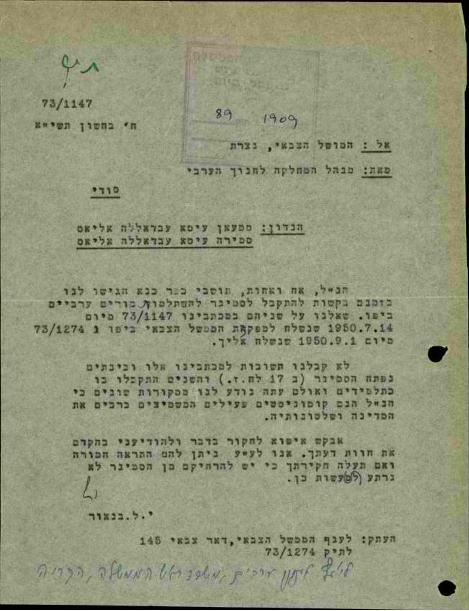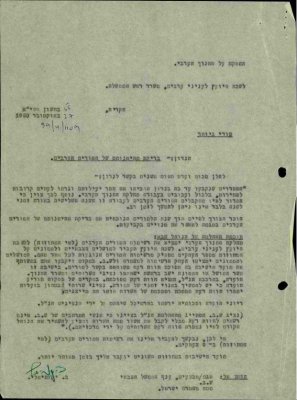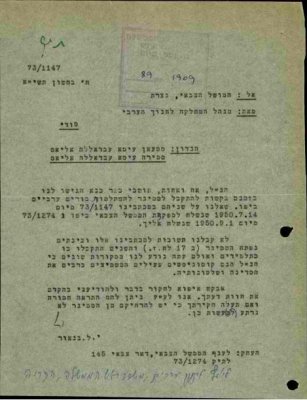Since Israel’s founding – and to this day – state officials have kept an eye on the employment, opinions, and actions of Arab public school teachers working in Palestinian communities in Israel. Two documents from the early 1950s reveal how closely teachers were watched, and exposes a protocol drafted at the time to ensure Palestinian teachers passed a reliability evaluation by the Arab Affairs Advisor, the military governors, the Ministry of Education, the Shin Bet, and the police.
Letter from the Supervisor of Arab Education to Arab Affairs Advisor
In October 1950, a decision was made to have the Department for Arab Education provide lists of teachers who were in line for permanent positions to the Office of the Arab Affairs Advisor. The office would then send the lists to the military governors, the district directors, the Shin Bet, and the police. In a letter to the Arab Affairs Advisor, the Supervisor of Arab Education explains that once each of these agencies sent in their evaluation of specific teachers, a special meeting would be called to “finalize a joint evaluation of the teachers,” in order to “enable their permanent appointment.”
Letter of the Director for Arab Education to Nazareth Military Governor
Keeping tabs on the political views of teachers and teacher candidates was one form of state monitoring, as exemplified in this letter from the Director for Arab Education at the time, Yehuda Leib Benor. In the letter, Benor sounds the alarm over a Palestinian brother and sister who had been accepted into the Arab Teachers Seminary in Jaffa despite being “active communists who publicly malign the state and its authorities.” The letter further indicates that Military Rule authorities had not responded to inquiries sent to them by the Ministry of Education about the two teachers.




